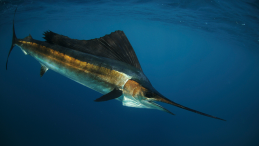On 2 February 2023, UNU-IAS co-organised an online symposium to celebrate World Wetlands Day. The event discussed best practices for ecosystem restoration, green infrastructure, and youth engagement to accelerate actions to conserve and restore wetlands under the theme “It’s Time for Wetland Restoration”. The symposium was organised in partnership with Wetlands International Japan (WIJ), the Global Environment Outreach Centre (GEOC), and the Ministry of the Environment of Japan.
In opening remarks, Shinobu Yume Yamaguchi (Director, UNU-IAS) stressed the importance of synergistic action to address interlinked issues, highlighting integrated approaches such as the International Partnership for the Satoyama Initiative (IPSI). She encouraged active participation of youth in the UN Decade for Ecosystem Restoration, including wetlands restoration which benefits not only biodiversity and ecosystems, but also contributes to climate change mitigation and adaptation, disaster risk reduction, and human well-being.
Highlighting that wetlands across the world are being lost at alarming rates, Keiichi Nakagawa (Wildlife Division, Nature Conservation Bureau, The Ministry of the Environment of Japan) introduced wetland restoration projects in Japan. He provided an update on the new National Biodiversity Strategy of Japan, which is being developed to align with the Kunming-Montreal Global Biodiversity Framework.
Makiko Yashiro (Programme Management Officer, UNEP Asia and the Pacific Office) gave an overview of the UN Decade on Ecosystem Restoration. She invited participants to take part in the initiative and take advantage of its networking opportunities and outreach resources.
Discussing restoration efforts at the Ramsar site Kabukuri-numa in Miyagi, Japan, Masayuki Kurechi (Chair, Japanese Association for Wild Geese Protection) explained that wetland restoration was a nature-based solution contributing to flood control and sustainable agriculture. He stressed the importance of having a shared vision among stakeholders for successful restoration efforts.
Takuma Sato (Youth Ramsar Japan, Kumamoto University) presented youth perspectives on the 13th Meeting of the Parties to the Ramsar Convention on Wetlands (COP13), and Green Watershed and Flood Prevention Project. He noted that the adoption of digital communications and the ability to collaboratively seek solutions to complex issues were the key strengths of youth.
Rounding up the presentations, Raymond Owusu-Achiaw (Natural Resource Manager, Conservation Alliance International-Ghana, an IPSI member) introduced community-led wetland restoration practices in Songor, Ghana. He pointed out that the Interagency Restoration Approach (IRA) used in Songor led to effective solutions by encouraging multi-stakeholder cooperation.
In closing remarks, Kazuaki Hoshino (President, WIJ) called for accelerated actions for wetland restoration, highlighting the importance of integrating individual efforts with good policy planning at the national level.



